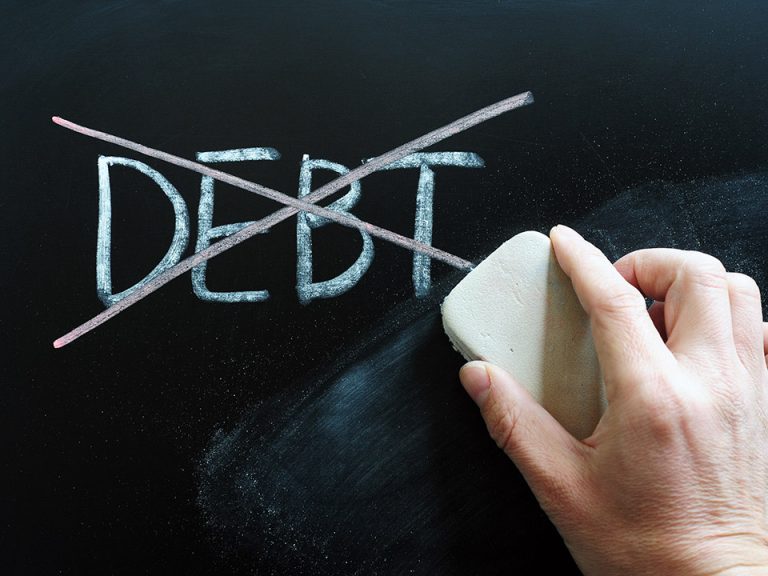Tips on staying out of debt and understanding what options are available if you have hit a financial rut (bankruptcy, debt settlement, credit counseling)
Sometimes, we all need a little encouragement and positivity to keep on going. I know this from experience, and that’s why I have these words of wisdom for you on how to stay out of debt. So take some time today to read through these tips to get some fresh inspiration — inspiration that may just change your life in more ways than one!
1. Keep your credit score up
Some people only get into debt when they need to. Other people end up in financial trouble by spending more than they make without a plan to pay it back. Having a good credit score will ensure that if you do need to rack up some temporary debt you will be able to pay it back quicker because you will be paying lower interest rates.
2. Use your credit card in full
Pay your balances in full every time you get a statement and don’t carry a balance from month to month — especially if you have a high interest rate! If you do carry a balance just make sure it is a small one and be sure to pay it off as soon as possible.
3. Never put anything on a credit card that you can’t afford to pay for immediately
Don’t go over your set credit limit either unless you want to risk ruining your credit score and having a hard time getting new lines of credit in the future. The key to getting out of debt is the ability to pay off your debts as quickly as possible. If you’re paying minimum payments that just barely cover the interest rate then you may never get a chance to get rid of your debt. Keep in mind, however, that if you only pay minimum payments on some of your debts and then splurge on something else then you are just going to run up more debt continuing with a cycle that will never end until you decide to change things!
4. Never miss a payment
Missed payments drop your score like a rock. If you have a hard time making a payment, just call your creditor and ask for an extension. There’s no harm in being proactive to avoid late fees and damage to your credit score.
5. Check your statements for errors
Debt collectors do make errors, so be sure to keep on top of the statements you get from them and report any mistakes right away. It can save you some grief later on if an error does show up!
6. If you can’t pay the balance in full, pay as much as you can
If you make the minimum payments every month it could take 20 or even 30 years for your debt to be paid off, if it’s not paid off in the first couple of years then that’s even longer before you can actually get out of debt.
If you run into financial trouble here are the steps you can take:
The first option is to take out a personal loan. A personal loan can be used for almost anything that requires money and doesn’t need to be paid back in the next 30 days. The second option would be to ask your bank for help. So if you have a checking account, savings account, or both with the bank, they may give you up access to emergency funds or an extension on your loan without charging any additional fees. The last option would be borrowing from friends and family members. Borrowing from friends and family members can be a very good option depending on how comfortable you are with them.
Debt settlement can be a good option to explore if you have exhausted your other options. Debt settlement is a process where the lender and borrower come to an agreement on how much the borrower owes and what percentage of that amount should be paid back. However, debt settlements often involve paying high up-front fees for the services rendered. In fact, the FTC (Federal Trade Commission) states that in many cases, debt settlement services can cost more than the original debts. So, consider this option carefully and do your own research.
Credit counseling is a lot like debt settlement. Credit counseling is provided by various nonprofit organizations and government sponsored agencies. They will work with you to create a budget that you can afford and help you lower your monthly payments or interest rates on debts while helping you save money to pay down those debts. Many times these services are free or at least partly free, but there may be some fees involved if they have to take on legal representation (if there is a lawsuit filed against you).
Bankruptcy is a last resort for most people who are in debt. However, it is an option that should be considered carefully. Keep in mind that if you file bankruptcy, it can be very difficult to get out of debt completely. It is very difficult to get credit after you file bankruptcy.
And just because you file bankruptcy doesn’t necessarily mean that your debts disappear. Some debts do not disappear in bankruptcy like student loans and taxes. It is important to consult an attorney before filing for bankruptcy.
If you are going to file bankruptcy, you need to be aware that you will remain responsible for paying certain debts. Also, it’s important to know that after you file bankruptcy, it remains on your credit report for 10 years or longer in some cases. In order to repair your credit after filing bankruptcy, you will most likely have to wait until your debt is completely paid off before applying for any lines of credit.
Whichever options you choose, be sure to check out the reputation of the company or person that you are dealing with before handing over any of your money. You should also read and understand the contract they are going to have you sign before the work begins. By knowing your options, considering your situation/budget, and doing research before hiring a company or person to help then you can ensure that you make the best decision possible regarding paying off debt.








